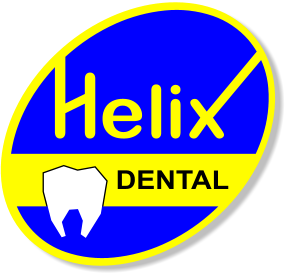To find out more about the dental services offered at Helix Dental, call (973)-377-8668 or schedule an online consultation. You can also visit us at 15 James Street, Florham Park, NJ, 07932.

Who Is a Good Candidate for Dental Implants?
Are you missing a tooth or dealing with uncomfortable dentures? Dental implants could be the solution you've been looking for! Imagine having a natural-looking and permanent tooth replacement that restores your smile and confidence. In this blog post, we will explore who makes an ideal candidate for dental implants, the benefits they offer, and what to expect during the treatment process. Let's dive in to discover if dental implants are right for you!
What are Dental Implants?
Dental implants are a revolutionary solution for replacing missing teeth, offering a long-term alternative to traditional bridges or dentures. These implants consist of a titanium post that is surgically placed into the jawbone, acting as a sturdy foundation for artificial teeth.
Once the implant fuses with the bone through a process called osseointegration, it provides unparalleled stability and support for crowns, bridges, or dentures. The result is a natural-looking tooth replacement that functions and feels just like your own teeth.
One of the key advantages of dental implants is their durability – with proper care, they can last a lifetime. Unlike removable dentures, implants are fixed in place and do not require special adhesives or cleaning solutions. Additionally, they help preserve bone structure in the jaw and maintain facial aesthetics over time.
Dental implants offer patients an innovative way to restore their smile and oral function with confidence and comfort.
Benefits of Dental Implants
Dental implants offer numerous benefits that go beyond just replacing missing teeth.
- One of the key advantages is that they look and feel like natural teeth, providing a seamless smile restoration. Unlike dentures, implants are securely anchored in the jawbone, allowing for improved comfort and stability while eating or speaking.
- Another benefit of dental implants is their durability. With proper care, they can last a lifetime, making them a long-term solution for tooth replacement. Additionally, implants help preserve bone density in the jaw by stimulating growth and preventing further deterioration.
- Moreover, dental implants do not require alteration of adjacent healthy teeth like traditional bridges do. This helps maintain overall oral health by preserving the integrity of surrounding teeth. Improved aesthetics, functionality, longevity, and oral health make dental implants an excellent choice for individuals seeking a permanent solution to missing teeth.
Who Can Get Dental Implants?
When it comes to getting dental implants, not everyone may be an ideal candidate. While age is not a determining factor, having good overall health and healthy gums are crucial. Individuals with uncontrolled chronic diseases like diabetes or heart disease may need to consult their healthcare provider before considering dental implant surgery.
Additionally, sufficient bone density in the jaw is necessary to support the implant. If there is inadequate bone structure, procedures like bone grafting may be required before moving forward with the implant process.
Smokers should also be aware that smoking can negatively impact the success of dental implants due to its effects on healing and blood circulation. It's important for potential candidates to discuss their lifestyle habits and medical history with their dentist to determine if they are suitable for dental implants.
Being a good candidate for dental implants involves a combination of factors, including oral health, overall health, bone density, and lifestyle choices that can influence the success of the procedure.
Factors That Make Someone a Good Candidate for Dental Implants
When considering dental implants, several factors come into play to determine if someone is a good candidate for the procedure. One key factor is overall oral health – individuals with healthy gums and sufficient bone density are more likely to have successful implant placement.
Additionally, being a non-smoker can greatly increase the chances of successful integration of the implants. Smoking can hinder the healing process and impact the long-term success of dental implants.
Good candidates for dental implants also exhibit a commitment to proper oral hygiene practices. Maintaining regular brushing, flossing, and routine dental visits is crucial for the longevity of dental implants.
Furthermore, individuals with realistic expectations about the process and outcome are ideal candidates. Understanding that dental implants require time for healing and adherence to post-operative care instructions is essential for a successful outcome. Call us to learn more.
The Process of Getting Dental Implants
When it comes to getting dental implants, the process is a well-orchestrated series of steps that ultimately lead to a restored smile. It all begins with a comprehensive consultation with your dentist to determine if you are a good candidate for dental implants.
If you are deemed suitable for the procedure, the next step involves implant placement into the jawbone during a minor surgical procedure. This serves as the foundation for your new artificial tooth.
Following this, there is a healing period where osseointegration occurs – this is when the implant fuses with the surrounding bone tissue. Once this integration is complete, an abutment is attached to connect the implant to the replacement tooth.
A custom-made crown or prosthetic tooth is affixed securely onto the abutment, completing your new smile seamlessly and naturally. The entire process may take several months from start to finish, but it results in a long-lasting and durable tooth replacement solution.
Aftercare and Potential Complications
After getting dental implants, proper aftercare is crucial to ensure successful healing and longevity of the implants. Following the dentist's instructions regarding oral hygiene practices, such as brushing and flossing regularly, will help prevent infections and maintain overall oral health.
It is normal to experience some discomfort or swelling after the procedure, but these symptoms can be managed with pain medication prescribed by your dentist. In case of persistent pain or swelling, it is important to contact your dentist for further evaluation.
While complications with dental implants are rare, they can include infection at the implant site and damage to surrounding teeth or blood vessels during surgery if not performed by a skilled professional. It is essential to choose a qualified and experienced implant specialist to minimize the risk of complications.
Regular follow-up appointments with your dentist are necessary to monitor the healing process and ensure that the implants are integrating properly into your jawbone. By diligently following post-operative care guidelines, you can enjoy a beautiful smile with functional and long-lasting dental implants.
Conclusion
Dental implants are a fantastic option for individuals looking to restore their smile and improve oral health. With numerous benefits such as durability, natural appearance, and improved functionality, they stand out as a top choice for tooth replacement in Florham Park, NJ.
By considering the factors that make someone a good candidate for dental implants and understanding the process involved, you can make an informed decision about this transformative treatment. Remember to follow aftercare instructions diligently to ensure successful healing and minimize potential complications.
If you are interested in exploring dental implant options further or determining if you are a suitable candidate, consult with your dentist or an experienced prosthodontist. Restore your smile, regain confidence, and enjoy the many advantages that dental implants have to offer.
Location
15 James St Suite 1,
Florham Park, NJ 07932
Office Hours
MON9:30 am - 5:30 pm
TUE - WED9:00 am - 6:30 pm
THUClosed
FRI9:00 am - 6:30 pm
SAT9:00 am - 2:00 pm
SUNClosed






comments